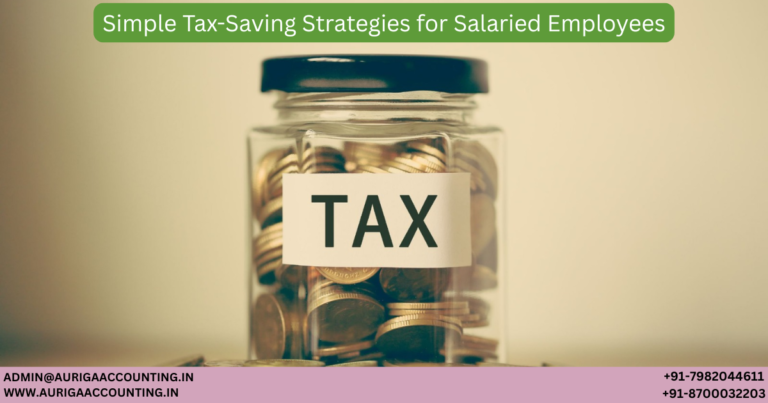Dinesh Pandiyan is a seasoned content writer with expertise in business registration, tax laws, trademark regulations, and corporate compliance. His well-researched articles offer practical, easy-to-understand guidance, empowering businesses to navigate complex legal and regulatory landscapes with confidence.

Tax-Free Limit on Rental Income in India
Introduction
ToggleRental income is a widely earned source of income in India and is typically taxed under the head “Income from House Property.” However, if the property is used as part of a business, the earnings may be classified as “Business Income.”
For individual taxpayers, the basic exemption limit—currently ₹2,50,000—plays a significant role in determining whether rental income is taxable.
Understanding how rental income is taxed, the types of rental income, and the deductions available under the Income Tax Act is crucial for accurate tax reporting and reducing overall tax liability. This article explains how rental income is treated under Indian tax laws, the applicable exemptions, and the deductions one can claim
Types of Rental Income in India
The Income Tax Act classifies rental income based on the type and use of the property. Below are the key categories of rental income and their tax treatment:
1. Rental Income from Properties
This includes rent received from residential or commercial buildings, apartments, and land attached to a building. Tax is calculated based on:
Gross Annual Value (GAV): Total rent received annually.
Net Annual Value (NAV): GAV minus municipal taxes.
Deductions:
30% standard deduction under Section 24(a) for maintenance.
Deduction for interest on housing loans under Section 24(b), if applicable.
2. Income from Partially Rented Properties
When a property is partly rented and partly self-occupied, only the rental portion is taxable. Standard deductions apply only to the rented area.
3. Composite Rent
Composite rent includes rent received for both property and additional facilities (e.g., furniture, equipment). The property-related portion is taxed under “Income from House Property,” while payments for services or assets may be taxed as Business or Other Sources income.
4. Rental Income from Commercial Properties
Rent from shops, offices, and other commercial spaces is treated similarly to residential properties. The same tax rules for GAV, NAV, and deductions apply
Taxation of Rental Income in India
Rental income is taxed under Section 22 of the Income Tax Act as Income from House Property, subject to these conditions:
1. Physical Existence of Property
The property must be a tangible structure—residential, commercial, or land attached to a building.
2. Legal Ownership
Only the owner or deemed owner of the property is liable to be taxed on the rental income.
3. Non-Use for Business
If the property is used for the owner’s business or profession, rental income is not taxed under “house property” but as business income
How is Rental Income Tax Calculated?
Here’s the step-by-step method to compute taxable rental income:
Calculate Gross Annual Value (GAV):
Total annual rent received.Deduct Property Tax Paid:
Subtract municipal taxes to find the Net Annual Value (NAV).
NAV = GAV – Property TaxApply Standard Deduction (30%):
A fixed 30% deduction on NAV for repairs and maintenance.
Deduction = 30% of NAVDeduct Housing Loan Interest (if any):
Full deduction on interest paid under Section 24(b) for rented properties.Taxable Rental Income = NAV – 30% Deduction – Housing Loan Interest
Illustrative Example
Details:
Annual Rent (GAV): ₹5,00,000
Property Tax Paid: ₹20,000
Home Loan Interest Paid: ₹1,00,000
Calculation:
NAV = ₹5,00,000 – ₹20,000 = ₹4,80,000
Standard Deduction = 30% of ₹4,80,000 = ₹1,44,000
Balance = ₹4,80,000 – ₹1,44,000 = ₹3,36,000
Deduct Loan Interest = ₹3,36,000 – ₹1,00,000 = ₹2,36,000
Taxable Rental Income: ₹2,36,000, taxed per applicable slab rate
Tax Deductions on Rental Income
1. Standard Deduction – Section 24(a)
A flat 30% deduction on NAV for all rented properties. Automatically applied; no proof of expenses needed.
2. Home Loan Interest – Section 24(b)
For rented properties: Full deduction on interest paid.
For self-occupied properties: Limit of ₹2 lakh per year.
3. First-Time Homebuyer Benefits
Section 80EE: Extra deduction of ₹50,000 on interest for loans sanctioned between April 1, 2016 – March 31, 2017.
Section 80EEA: Up to ₹1.5 lakh deduction for loans sanctioned between April 1, 2019 – March 31, 2022, subject to conditions.
4. Joint Ownership
Co-owners can claim deductions individually for their share of:
Interest (Section 24b)
Principal repayment (Section 80C)
This makes joint property ownership a tax-efficient strategy
How Rental Income of Up to ₹10 Lakh Can Be Tax-Free (New Tax Regime)
Under the new tax regime, individuals with rental income up to ₹10 lakh can potentially pay zero tax, provided:
Rental income is their only source of income.
They don’t claim additional deductions outside standard allowances.
Example:
Rental Income: ₹10,00,000
Standard Deduction (30%): ₹3,00,000
Taxable Income = ₹7,00,000
If there are no other income sources, the taxpayer is eligible for a rebate under Section 87A, making the net tax liability zero
About the Author
Rohan
February 21, 2026
new
January 10, 2026
January 8, 2026
January 8, 2026
January 8, 2026
January 7, 2026
January 7, 2026
January 7, 2026
January 7, 2026
January 7, 2026
January 7, 2026
January 7, 2026
January 6, 2026
December 31, 2025
December 31, 2025
December 29, 2025
December 29, 2025
December 27, 2025
December 26, 2025
December 26, 2025
December 12, 2025
December 12, 2025
November 29, 2025
November 29, 2025
November 29, 2025
November 28, 2025
November 28, 2025
November 28, 2025
November 27, 2025
November 27, 2025
November 27, 2025
November 26, 2025
November 26, 2025
November 26, 2025
November 25, 2025
November 25, 2025
November 25, 2025
November 24, 2025
November 24, 2025
November 24, 2025
November 24, 2025
November 21, 2025
November 21, 2025
November 19, 2025
November 19, 2025
November 19, 2025
November 15, 2025
November 15, 2025
November 13, 2025
November 13, 2025
November 13, 2025
June 16, 2025
June 13, 2025
June 11, 2025
June 11, 2025
June 10, 2025
June 9, 2025
June 5, 2025
June 5, 2025
June 5, 2025
June 4, 2025
June 3, 2025
May 31, 2025
May 31, 2025
May 28, 2025
May 28, 2025
May 27, 2025
May 27, 2025
May 27, 2025
May 26, 2025
May 26, 2025
May 26, 2025
May 26, 2025
May 26, 2025
May 24, 2025
May 24, 2025
May 24, 2025
May 24, 2025
May 23, 2025
May 23, 2025
May 23, 2025
May 23, 2025
May 23, 2025
May 23, 2025
May 23, 2025
May 22, 2025
May 22, 2025
May 22, 2025
May 21, 2025
May 21, 2025
May 21, 2025
May 21, 2025
May 21, 2025
May 20, 2025
May 17, 2025
May 17, 2025
May 17, 2025
May 17, 2025
May 16, 2025
May 16, 2025
May 16, 2025
May 15, 2025
May 15, 2025
May 15, 2025
May 14, 2025
May 13, 2025
May 13, 2025
May 13, 2025
May 12, 2025
May 12, 2025
May 12, 2025
May 12, 2025
May 10, 2025
May 10, 2025
May 10, 2025
May 10, 2025
May 9, 2025
May 9, 2025
May 9, 2025
May 9, 2025
May 9, 2025
May 8, 2025
May 8, 2025
May 8, 2025
May 8, 2025
May 8, 2025
May 8, 2025
May 8, 2025
May 7, 2025
May 7, 2025
May 7, 2025
May 7, 2025
May 7, 2025
May 7, 2025
May 6, 2025
May 5, 2025
May 5, 2025
May 5, 2025
May 3, 2025
May 3, 2025
May 3, 2025
May 3, 2025
May 3, 2025
April 30, 2025
April 30, 2025
April 29, 2025
April 28, 2025
April 28, 2025
April 28, 2025
April 28, 2025
April 26, 2025
April 26, 2025
April 26, 2025
April 26, 2025
April 26, 2025
April 25, 2025
April 25, 2025
April 24, 2025
April 23, 2025
October 30, 2023
October 30, 2023
October 30, 2023
October 30, 2023
October 28, 2023
October 28, 2023
October 28, 2023
October 28, 2023
October 28, 2023
October 28, 2023
October 28, 2023
October 28, 2023
October 28, 2023
October 27, 2023
October 27, 2023
October 27, 2023
October 27, 2023
October 27, 2023
October 27, 2023
October 27, 2023
October 27, 2023
October 26, 2023
October 26, 2023
October 26, 2023
October 26, 2023
October 26, 2023
RELATED ARTICLES
Key Reasons...
Simple Tax-Saving...
Tax Saving...
Section 80GGA:...
Guide to Income...
How to Verify...
Handling Income...
No posts found












